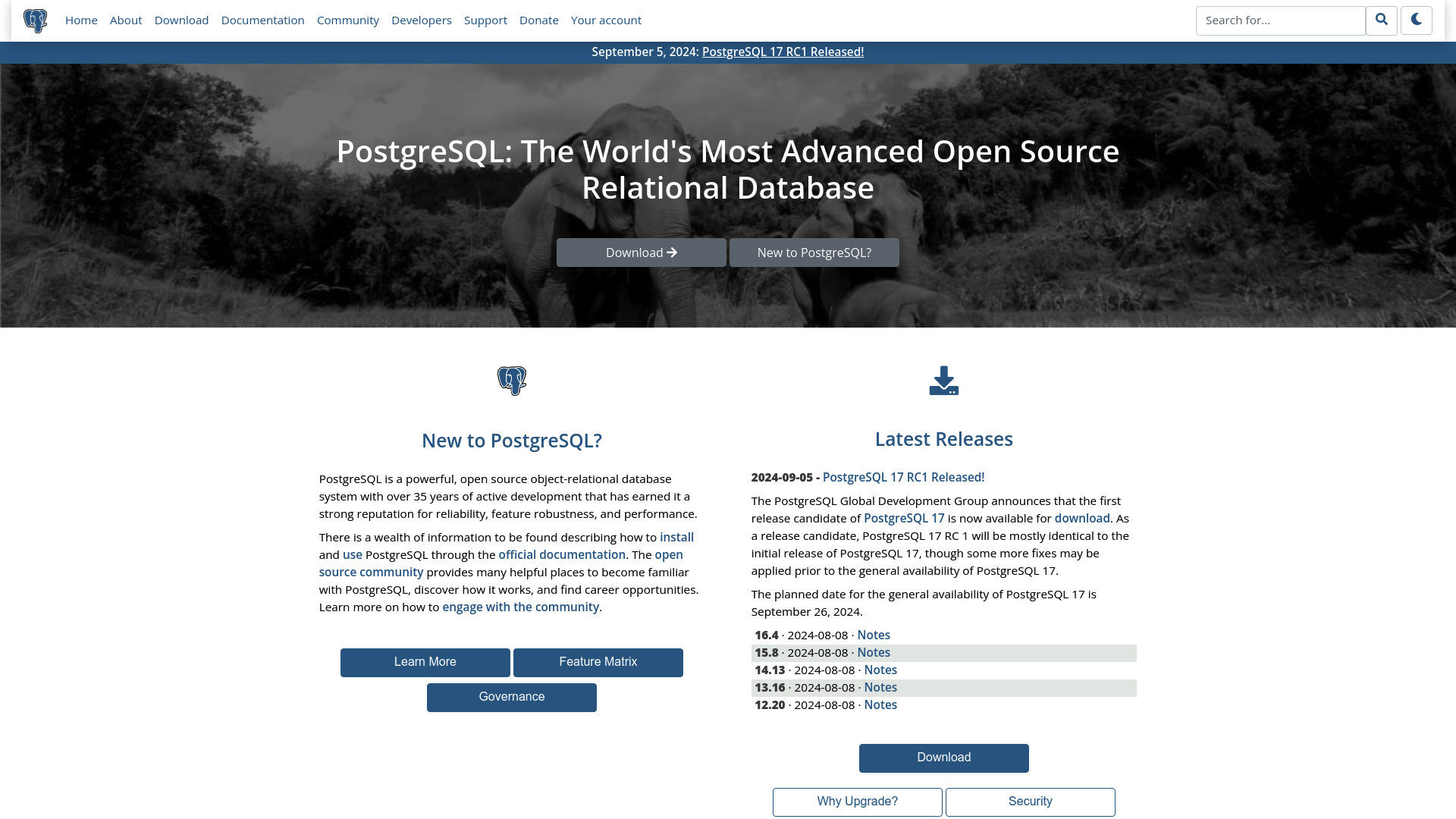Open Source Alternatives to MS SQL
The best Database tools similar to MS SQL
Postgres stands out as a leading open-source alternative to MS SQL.
The MS SQL ecosystem primarily consists of Database solutions. Explore these alternatives to discover tools that align with your specific MS SQL-related requirements, whether you're looking for enhanced features, different user experiences, or specialized functionalities.

PostgreSQL is a powerful, open-source object-relational database system with over 35 years of active development. Renowned for its reliability, feature robustness, and performance, PostgreSQL has become a leading choice for developers and enterprises around the globe. The PostgreSQL community offers extensive documentation and support, making it easy to install, use, and master this advanced database system.
- Reliability: PostgreSQL is known for its reliability, ensuring your data is stored safely and accurately.
- Feature Robustness: Packed with features like advanced indexing, full-text search, and JSON support, PostgreSQL meets diverse application needs.
- High Performance: Optimized for high performance, PostgreSQL can handle large volumes of data and complex queries efficiently.
- Open Source Community: Benefit from a vibrant open-source community that provides support, resources, and career opportunities.
- Extensive Documentation: Comprehensive official documentation helps users install, configure, and maximize PostgreSQL's capabilities.
With its strong reputation and active development, PostgreSQL continues to be a cornerstone in the world of relational databases, meeting the needs of modern applications and enterprises.
Discover Open Source Alternatives to:
View allAirtable
Empower teams to create custom apps without coding.
Contentful
NewContentful acquires Ninetailed to boost AI-driven personalization.
Typeform
Customize your cookie settings for tailored content.
Notion
All-in-one workspace with AI integration.
1Password
Empower teams with secure access management.
tableau
Tableau helps people see, understand, and act on data.